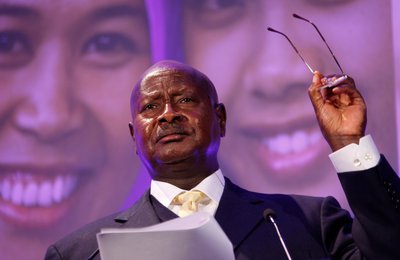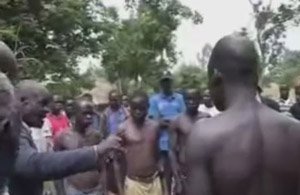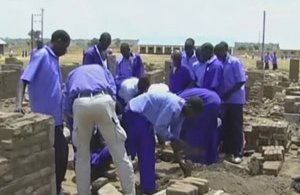In an unprecedented advocacy effort, a coalition of civil society groups has convened a 'High Level Stakeholders' Dialogue' to galvanise support for the prioritisation of transitional justice and sustainable peacebuilding in Uganda. They also wish to make the recovery and transformation of conflict-affected areas an election issue for all candidates vying for public offices in the forthcoming general elections in Uganda. This dialogue, to be the first in a series, was held on 2 August 2010 at the Bomah Conference Hall in Gulu: one of the districts most affected by over two decades of Lord’s Resistance Army (LRA) insurgency in northern Uganda. Uganda holds crucial local government, parliamentary and presidential elections early next year.
The Northern Uganda Transitional Justice Working Group (NUTJWG), which convened the stakeholders’ dialogue, is a local grassroots umbrella coalition of civil society, NGOs, and groups advocating for peace, justice and reconciliation in conflict affected regions. NUTJWG was founded in 2008 to ensure there was a coherent momentum and pressure for a more comprehensive and inclusive transitional justice process, not only for northern Uganda but Uganda as a whole. Since 2008 the group has organised a series of consultations and engagements with victims groups, affected communities and other stakeholders to generate enthusiasm for addressing the profound questions of disruption, losses, destruction, hatred and harm caused by the prolonged conflict.
“It’s pretty clear that the two decade conflict has left an immeasurable impact on the population and demands a coordinated comprehensive and national response if perception and real loss, grief, and anguish of the affected community should appear acknowledged.” NUTJWG Coordinator Charles Toolit Atiya

This Stakeholders' Dialogue was attended by a whole range of actors including government officials, local government representations, and representatives of major political parties in Uganda, civil society, victims' groups, religious organisations, human rights groups and humanitarian agencies within the greater northern Uganda.
Participants applauded the decision by the government to continue implementing key provisions of the Juba peace agreements signed between the government of Uganda and LRA - despite the LRA continuing to commit atrocities in North West DR Congo, southern Sudan and parts of the Central African Republic. The continued rebellion of the LRA demonstrates the urgency and importance of prioritising peacebuilding and transitional justice measures to conflict-affected populations to prevent a resurgence in the violence.
It is crucial that policy-making on transitional justice be a broad and inclusive process from the early stages. Local grassroots coalitions like NUTJWG are vital to sustainable peacebuilding in northern Uganda. Civil society and community-based organisations become crucial interlocutors, encouraging people to take part and feel part of the process. This translates to local ownership of the democratisation and peacebuilding processes, both of which are ongoing. Civil society can also act as an essential monitor of the process during elections when government actors and political leaders get decontructed by campaigns. To streamline these imperatives, civil society organisations want transitional justice measures - including peacebuilding, national reconciliation in Uganda and transformations of conflict-affected regions - to be a benchmark for all election manifestos.
This advocacy targets the youth and women groups to mobilise them to push politicians and consider voting only for political candidates and parties with clear agendas for peace, reconciliation, recovery and reparations to conflict-affected populations and Uganda as whole.
[linked page_id="8146"]









